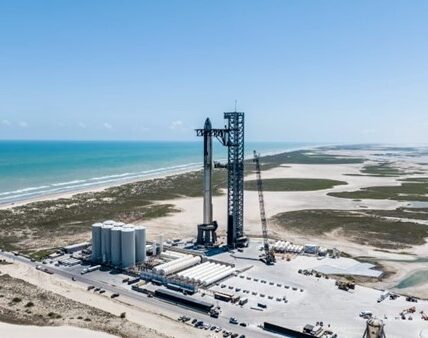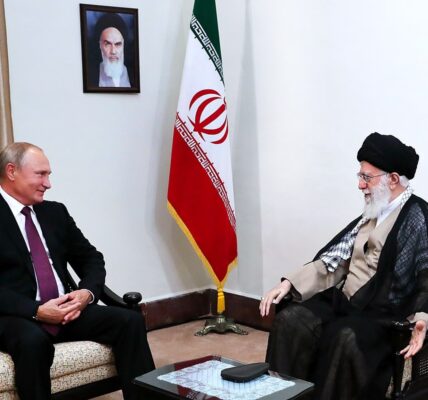“The Future is in the Sky”: Space’s Ax-3 Mission – A Triumph of Collaboration, Science, and Interstellar Aspirations
In a historic moment for space exploration, Axiom Space has successfully concluded its third all-private astronaut mission to the International Space Station (ISS). The mission, aptly named Axiom Mission 3 (Ax-3), stands out as the first all-European commercial astronaut mission, bringing together astronauts from Turkey, Spain, Italy, and Sweden.

As the SpaceX Dragon spacecraft splashed down off the coast of Florida on Friday, marking the first human spaceflight of the year, the significance of this achievement reverberates not only in scientific circles but also in the hearts of those who recognise the collaborative efforts behind this mission.
Paving the Way: Ax-3’s Impact on Space Exploration
Today, a substantial chunk of the world’s economy depends on space technology, spanning sectors like telecommunications worth trillions, to Earth observation for sustainable resource management, and national security, the space economy is estimated to reach $1 trillion by 2040.
Axiom Space firmly cements its pioneering role in commercial space exploration with the resounding success of Ax-3’s splashdown on 9th February. Private astronaut missions like Ax-3 are helping to pave the way for the transition beyond ISS operations.
As debates surrounding the ISS’s future beyond 2025 intensify, Axiom Space is actively contributing to shaping the next chapter. The company’s plan to send its own modules for commercial use aligns with evolving global visions for space exploration.
Such a move also lessens the dependence on state-run programs for key space activities, which reduces vulnerability to potential limitations or political disputes.
Furthermore, Russia’s intention to depart from the ISS after 2024 is a cause for concern, serving as a stark warning that the future of space may not be as collaborative — or international —as it once was. President Vladimir Putin’s announcement signifies the official commencement of the end of Russia’s cooperation on the ISS.
Putin’s ambitious goal to establish a Russian space station by 2027, adds another dimension to the evolving landscape of space exploration. This trajectory implies the potential existence of three space stations in orbit within this decade: Axiom Station, the Chinese station, and a Russian station. In this context, the success of Axiom’s endeavours becomes all the more significant, highlighting the transformative potential of private initiatives in the cosmos.

Cosmic Connections – Navigating the Frontiers of Collaboration
The geopolitical significance of Ax-3 is profound. As the first all-European commercial astronaut mission, it exemplifies the power of international collaboration in space exploration. The crew’s composition from Türkiye, Spain, Italy, and Sweden symbolises unity beyond borders, showcasing how the pursuit of scientific knowledge can connect humanity on a global scale.
Türkiye celebrated its inaugural journey into space with Ax-3, contributing to the crew’s diversity with its first ever astronaut, and underlining the mission’s broader impact on participating nations.
A video by Axiom begins with a stirring message, echoing the words, “Our Dreams Are Not Limited By The Sky We See.” This sentiment encapsulated the essence of Ax-3, where Commander Michael López-Alegría, Pilot Walter Villadei, Mission Specialist Alper Gezeravcı, and Mission Specialist Marcus Wandt embarked on a groundbreaking journey that culminated in the successful docking at the ISS on 20 January 2024.
After 20 days in space the Ax-3 crew conducted a comprehensive set of over 30 experiments. Ranging across fields of biology and technology, these experiments underline Axiom Space’s commitment to advancing microgravity research and technology demonstrations. The crew furthered global understanding and enthusiasm for space exploration through active participation in over 50 outreach events.

People line up in Kızılay Square in the Turkish capital of Ankara to watch the docking process of the Dragon spacecraft, carrying Turkey’s first astronaut Alper Gezeravcı. (Source: Haberet)
Jasmin Moghbeli, a distinguished US astronaut, shared her profound reflections on the experience she had with the Ax-3 crew during their time on the ISS “Although we only spent about two and a half weeks together, the bonds we formed will last much longer. After all, how many people can one say they flew in space with? I am also incredibly proud that we had 11 crewmembers onboard, representing 9 nationalities! This is what the INTERNATIONAL Space Station is all about.”
From the early space race victories of the Soviet Union to the construction of the ISS, space exploration has been marked by significant milestones. The collaborative spirit demonstrated by astronauts from various nations on the ISS showcases the potential for international cooperation, even amid political tensions.
It is also important to acknowledge the extraordinary achievement of successfully executing this mission. A notable illustration from 2019 involves the Soyuz docking at the ISS, which was aborted, thereby highlighting the inherent risks and intricate nature of space travel.

The triumphant completion of Ax-3 not only stands as a remarkable achievement but also unveils a new chapter in defence and national security. By continuing to develop space technologies such GPS and satellite communication, combat forces not only bolster their capabilities but also actively counter false narratives through the seamless provision of timely, stamped satellite imagery. This collaborative approach not only safeguards national interests but also fosters a united front in the face of evolving global challenges.
Finally, in this intricate landscape, it is crucial to highlight the strategic importance of the continued U.S. leadership in having a space station in orbit. Ax-3’s journey echoes the spirit of collaboration, showcasing how endeavours in space exploration contribute not only to scientific progress but also to the collective strength of nations. The U.S.’s continued leadership in orbiting a space station becomes paramount, symbolising a commitment to advancing not only technological prowess but also fostering international cooperation for a safer and more interconnected future.










































































































































































































































































































